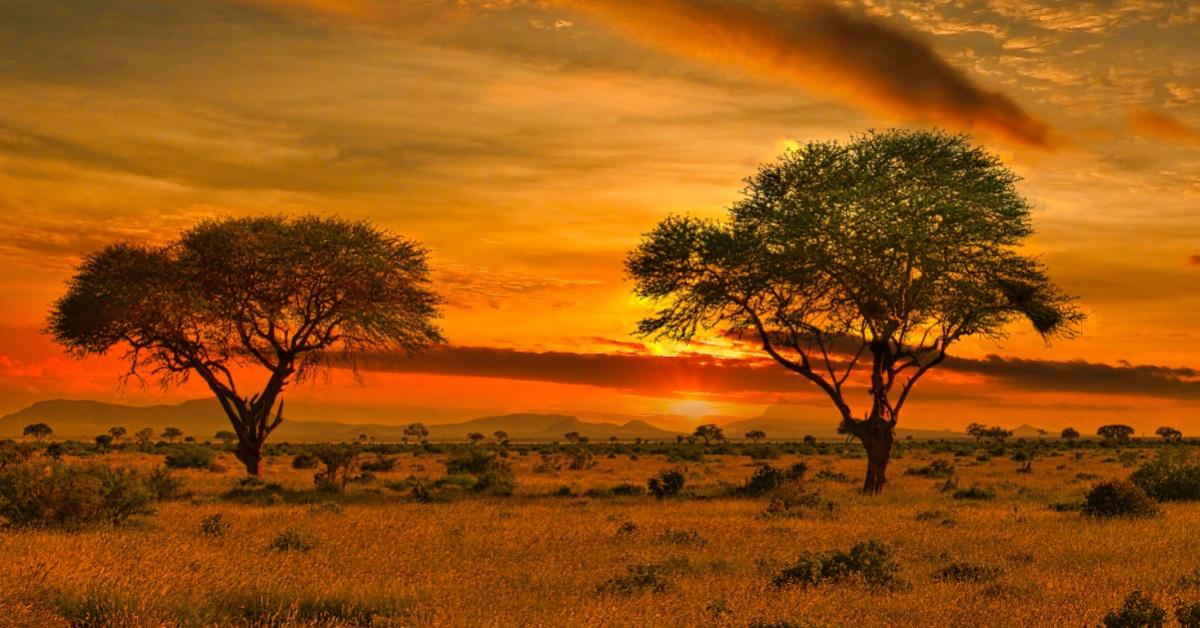
The ongoing energy crunch has revealed the hypocritical, if not duplicitous, nature of the Western imposition of climate and energy transition goals on other nations. Of course, we care about environmental protection, but the current arrangement amounts to eco-colonialism, is wildly detached from local realities, and severely hurts African economies and lives. For these and other reasons, African leaders should assert energy policy independence if they intend to serve and protect Africa’s socioeconomic well-being.
Africa must finally and truly develop. Access to dense, dispatchable, reliable, abundant, and cheap energy goods and services is crucial. Fossil fuels, which Africa has enormous quantities of, are best positioned to meet present and future demand. Today’s energy crisis conclusively shows that solar panels and wind turbines are not economically, materially, and ecologically viable alternatives.
If California and Germany did not succeed at their solar and wind experiments, no rational person would expect underdeveloped countries to succeed at it. So, it is malicious to coerce African countries into an energy “transition” that the developed world is failing to achieve.
Severe Energy Poverty
There is energy poverty everywhere, even in Western countries. But countries and regions are not equally energy poor. Africa, the least developed region, is, of course, the most energy poor. No need to turn this part of the article into a poverty porn session by presenting numerous statistics about the severity of energy poverty that plagues and cripples Africa. Still, some facts are worth pointing out.
N.J. Ayuk, chairman of the African Energy Chamber, notes that:
It is not an exaggeration to say energy poverty is one of our continent’s most pressing problems: Only 56% of Africa’s population has access to electricity today, and in many places, that power is still inadequate and unreliable at best. We address this topic in our recently released report, The State of African Energy 2022.
“Comprehensive energy access across the continent remains a central target, with some 600 million people without access to electricity today,” says the report. “Moreover, households themselves, facing low and inadequate supply of electricity, often rely on highly polluting traditional energy sources such as hard biomass, which constitutes 45% of total primary energy demand in Africa.”
Similarly, Professor James E. Hanley wrote:
Every economy needs a steady and reliable supply of energy. A lack of power, or undependable power that results in frequent blackouts, blockades the ability to develop a modern economy, whether industrial or commercial. Even more, the lack of reliable electricity leaves hundreds of millions of households dependent on highly-polluting sources such as charcoal for home cooking and heating. Millions of people die each year from indoor air pollution, mostly women, and many because of the use of home cooking fuels.
Indeed, energy poverty is severe and hurts Africa’s economic development and people in more ways than popularly understood. Yet, western governments and institutions continue to push for this agenda, which worsens Africa’s energy situation. At the same time, the West scrambles to access more of the very fuels it paternalistically tells Africa to transition away from. Energy duplicity is real.
Path to Energy Prosperity
Before I was born, Angola was already mired in severe and chronic energy problems. I am almost forty, and Angola is still mired in these problems. Angola is not an isolated case. This means the state-led development approach has failed to provide Africans with reliable and cheap energy goods and services.
Today as the energy, inflation, and other crises unfold, the veneer of economic development over Africa falls off, and the lamentable economic situation in which much of the continent is still in is displayed. That being so, mainstream economics should exercise humility, throw in the towel, and recommend that African governments try a fundamentally different approach to development.
Undeniably, mainstream economic models failed to create prosperous African societies after fifty years of attempts. Thus, one can justifiably argue that mainstream economics has been a cunning, cruel, and politicized intellectual framework that traps African societies in tyranny, dependency, and underdevelopment.
To say that Africa’s heavily statist economic systems have failed to deliver energy prosperity is perhaps an understatement. For much of Africa, energy poverty has been chronic and has even worsened in most countries. Instead of going forward, the state-led development approach relapsed African societies in some essential aspects of living standards.
So, after decades of policy failures, Africa’s bureaucrats should finally step aside and let free markets and free enterprise reign in energy production and distribution. Anyone able and willing to produce, distribute, and sell energy goods and services should be free to do so. The onerous mountains of regulations and oppressive bureaucratic measures must be removed if energy prosperity (and economic development) is the goal.
The free market is the fastest and most effective approach to making African societies sustainably energy rich. And do so in a unified and organic manner under the
African Continental Free Trade Area (AfCFTA). The economic truth here is this: if the goal is to achieve energy prosperity as rapidly, as effectively, and as sustainably as possible, free markets and free enterprise are the way. Not a way, the way.
Under the prevailing state-led approach, loans and grants are a primary source of cash African governments use to “direct” economic development. This means that the dependency on loans, grants, and state-sponsored investments are the strings Western and other regimes use to capture needy governments and lock them in vassalage. Hence, loans, grants, and other “development aid” are not the path to Africa’s energy (and economic) prosperity. On the contrary, insistence on this model perpetuates tyranny, dependency, and underdevelopment.
Notice also that most of Africa’s governments are becoming dangerously indebted, fiat money printing is a destructive policy, and tax regimes are rather oppressive. In other words, Africa’s governments may be reaching a cliff regarding taxation, debt accumulation, and deficit spending. Said differently, Africa’s economies cannot afford to finance the energy “transition” being imposed. Worse still, local and global economic conditions continue to deteriorate. If the U.S central bank continues to tighten monetary policy, Africa’s economies will hurt further amid persistent inflation, increased borrowing and debt servicing costs, forex issues, and elevated default risks.
Should decision-makers insist on the existing statist model, African countries will continue to experience severe energy (and economic) problems. More tragically, African countries, and thus the continent, would remain in vassalage and dependent on Western and other regimes for loans, grants, and other forms of so-called development aid. All of which ensure that African societies remain oppressed, heavily taxed, and underdeveloped.
The need to put African societies on the path to energy prosperity is urgent. The paradox, however, is that the prevailing statist economic thinking and antagonism toward free markets, free enterprise, and free trade are the most significant roadblocks to Africa’s energy (and economic) development. Not as much Western energy duplicity and overall meddling in African affairs.
Conclusion
The free market is the soundest, fastest, and most effective approach to transforming African societies from energy poor to energy rich. Moreover, free markets and free trade under the AfCFTA are the only way to make Africa as a continent energy prosperous in a unified, decentralized, and sustainable manner. In doing so, the Democratic Republic of Congo, for instance, becomes energy prosperous without disturbing its vast and precious rainforests for energy minerals exploration.




